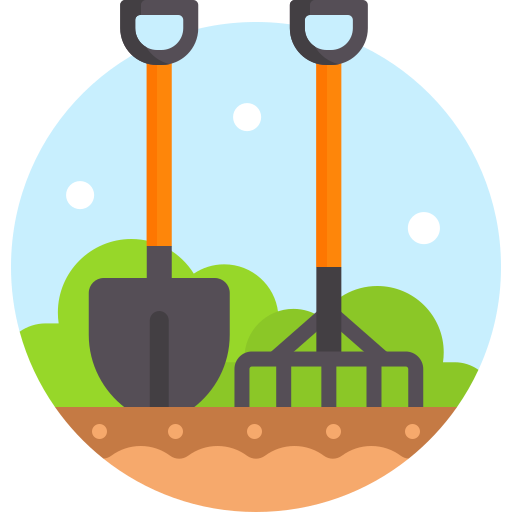- 2 Posts
- 21 Comments

 2·10 months ago
2·10 months agoI’ve considered it before, but maybe I should look into it a bit more concertedly! Every time I’ve gone into a doctor for a long term condition, they inevitably tell me to take B12 for 2 months and come back, and by that time I’ve usually lost my motivation for doing something about it. 😆
 32·10 months ago
32·10 months agoMy spouse: I was promised flying cars, and I don’t even get a conversation pit!

 41·10 months ago
41·10 months agoYeah, StS really ruined me for other deckbuilders, and I’m still chasing that high. Some pretty good ones have been Power Chord and Banners of Ruin. They’re both team-based games where cards are tied to certain characters, and I think that particular mechanic adds enough that it took me a while to crack the code on them.

 9·10 months ago
9·10 months agoThey’re not technically a non-profit, but there is a co-op doing exactly this named, very creatively, The Drivers Cooperative. They’re only in Colorado and New York (and I think specifically NYC) right now, but it’s exciting to see that happening.
 5·10 months ago
5·10 months agoI was actively taught in high school that “unions were nice, but not necessary any more, they get in the way of all our very cool free trade!”
Obviously, my thinking on that has changed a whole lot, but both my partner and I got fed that kind of rhetoric straight out of text books.

 2·11 months ago
2·11 months agoYup, and that’s mostly what I was looking for. I just kinda assumed it was an autism-related sensitivity thing, but it’s nice to have confirmation. Thanks for sharing!

 22·11 months ago
22·11 months agoThat’s a very interesting way to think about it, and as I think about an actual intense physical response like that, this kinda feels like a constant, low level version of that. Thanks for the articles! I definitely want to go dive into those.

 21·11 months ago
21·11 months agoYeah, that’s kinda the vibe I get. It’s definitely a receiving instead of initiating thing for me, too. I don’t know that it’s worse (because skin on fire sounds awful), but it’s kinda different.

 4·11 months ago
4·11 months agoTo the Moon was great. It’s made with RPG Maker and it shows, but it hits hard.
I have an irrational fondness for it. The stat leveling mechanic is real double-edged sword, though.
Unless we’re talking about 2/4 (with Cecil as the main character), in which case that one’s just an absolute banger, no notes.

 3·11 months ago
3·11 months agoWe think sand clocks have only been in use since the middle ages, and the reason they were invented is pretty interesting. (At least in Europe; I’ve looked into this before and couldn’t find any other sources, but I may just not have looked hard enough).
For reasonably accurate time keeping, people had been using water clocks since at least the 16th century BCE. Basically the same idea as a sand clock, but water, which was slightly easier to feed into a reservoir. We don’t think sand clocks really saw any use until the 13th or 14th century CE. Mostly, people needed to keep more accurate time on ships as oceanic voyages became more common, but the movement of the vessel messed up a water clock too badly to be useful, and pendulums had the same problem. So, enter a sand clock! Basically the same idea as a water clock, but way less prone to errors from the ship’s movement.
(edit: some spelling)

 1·11 months ago
1·11 months agoFun fact: we’re pretty sure this is why hourglasses (or sand clocks in general) were invented! They flow at a pretty consistent rate even on board a ship, and were basically just a tweak on the design of a water clock.

 11·11 months ago
11·11 months agoOh, definitely. It’s also worth noting that he definitely wasn’t a geologist, despite having an interest in it. I was mostly just mentioning it because there were theories trying to explain the similarities across landmasses before plate tectonics. We may not always be right about why, but we’re really good at noticing stuff like that (even when it doesn’t mean anything).
FWIW, seconded. These look basically identical the grape hyacinth bulbs in my yard.
You can check by making a tea out of them. I don’t recommend drinking it (it’s mostly just “green” flavor), but it works as a pH indicator. If you add a bit of lemon juice, it should turn pink!

 52·11 months ago
52·11 months agoDarwin believed one of the more popular explanations of his time: expanding Earth theory. Basically, the planet was like an expanding dough ball. It decently explained why things looked like they fit together. Darwin even went out to Patagonia to investigate some cliffs, and basically “confirmed” the theory.
Creating an endless torture mansion (finally got around to Sexy Brutale)
I did some reverse image searching and found this: https://www.comics.org/issue/222265/
I also found it for sale in eBay, so I’m bumping it up to 95%.

 2·11 months ago
2·11 months agoThat honestly sounds like the way to go, and I’ll probably look into it when I have more time. I’m more a software person than a sysadmin and I’m not wildly confident that I won’t accidentally close us down for a few days without a lot of prep. 😆

 2·11 months ago
2·11 months agoInventory is through our POS/processor and production records are through Beer30 (though I have plans to write my own and open source it when I have time; we just opened and we’re all still running pretty hard doing new-open stuff). We’re also technically a nano-brewery, so anything we’re doing is a little bespoke (i.e., I think it’s a very situational setup) right now.
The biggest thing from a brewery-specific side that we’re doing is controlling the brewhouse. We’re running an all-electric system, and all the heating and cellar controls expose UIs over the LAN. In addition to being generally nifty, we’re using Unifi to separate brewery-specific stuff onto its own network and the built-in VPN hosting (I opted for the OpenVPN option) to expose that network security. This allows our brewer to do stuff like check the temperature from home or set the boil kettle to start running before he leaves the house. (The useful thing about the UDM (primary server) running Alpine is that I have a task that essentially functions as dynamic DNS and updates an A record with our domain provider so he can always log in at a known hostname).
It also integrates with cameras, phone, and menu boards, which are all useful for the FoH side of things.
All-in-all, we’re not doing that much with it yet, but it’s pretty nice to use so far, and being a software engineer, I’m excited for the possibilities of useful stuff I can host on it.




Honestly, this whole thing has a cohesive vibe to it (or maybe that’s just the mood I’m in). Either way, I like it!